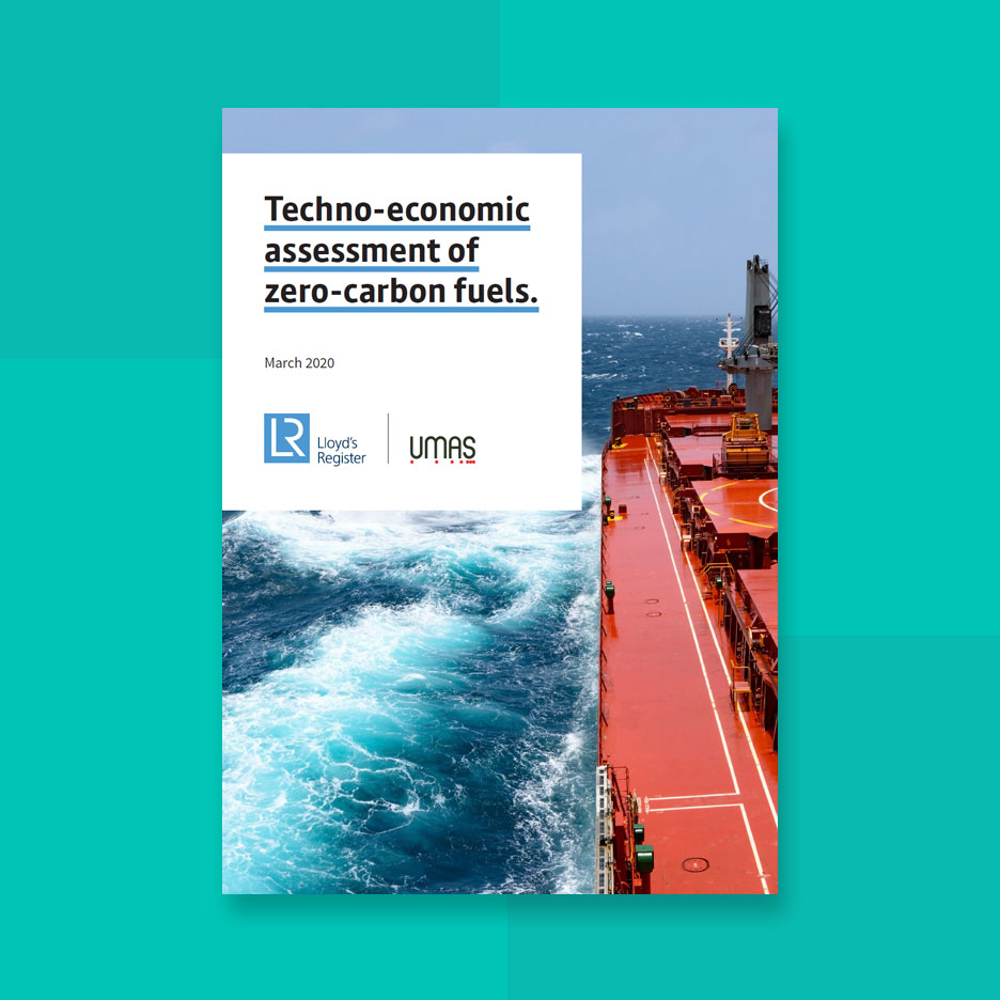LR and the University Maritime Advisory Services (UMAS) have published their latest assessment of the current and future fuels available to shipping to help define the optimum solutions as the maritime industry seeks to reduce greenhouse gas emissions.
Building on ground breaking research already undertaken by LR and UMAS into Zero-Emission Vessels (ZEVs) and potential transition pathways to decarbonisation, the report examines the three primary pillars of the adoption of zero-carbon fuels when compared with traditional fossil-based fuels; their readiness from an investment, technology and community perspective.
The study illustrates that regardless of which zero-carbon fuels emerge as favoured options from an economic perspective, from an onboard technology perspective, ZEVs are likely to be technologically possible in the next few years. However, for owners and operators to be confident around future investments, the industry will require confidence in the wider community around the fuel supply chain, both in terms of the availability in the quantities required and the land-based infrastructure for production, supply and distribution.
The assessment of technology readiness for the various zero-carbon solutions also provides an insight into the current barriers to market uptake, with screening and assessment undertaken on a fuel-agnostic basis, intended to help the industry identify opportunities for new approaches. The scope includes onboard procedures for bunkering, on-board storage, processing, conversion and propulsion.
Assessment of investment readiness includes a complete examination of energy source price scenarios, ship-specific case studies, total cost of operation, fuel related voyage costs, impact on cargo carrying capacity and a sensitivity analysis. The third element considers lifecycle emissions and the evolution of the energy landscape in other sectors to provide the context of the wider energy and industrial sectors.
Katharine Palmer, Lloyd’s Register Global Sustainability Manager, said: “This paper is the next chapter of our low carbon series, following ‘Zero-Emission Vessels: Transition Pathways’ published in January 2019. Our work with the Methanol Institute and UMAS is designed to help industry stakeholders to understand the dynamics and interactions between technology, investment and community readiness within the wider range of ship types, sizes and operational profiles. It reinforces that decarbonising of the shipping sector requires substantial and collaborative effort by maritime and energy stakeholders and beyond.”
Chris Chatterton, Chief Operating Officer, The Methanol Institute, said: “In recognising the scale of the decarbonisation challenge for shipping, there is a need for unbiased, high quality research that presents the alternatives side by side, so that owners can work with all relevant stakeholders to investigate the right solution for their fleets. We’re pleased that this report recognises the role that Methanol has to play in shipping’s transition to a low carbon economy and ultimately as a net zero carbon fuel.”
Carlo Raucci, Principal Consultant, UMAS said: “This paper highlights the importance of using a holistic approach when assessing the fuel choice for the decarbonisation of the shipping industry and brings together two essential elements: the evolution of fuels production and the implications of their use onboard ships. The answers to the strategically important question ‘what will be the future fuel for shipping?’ will require further research and analysis, in that regard, this paper provides an important contribution in answering that question.”






